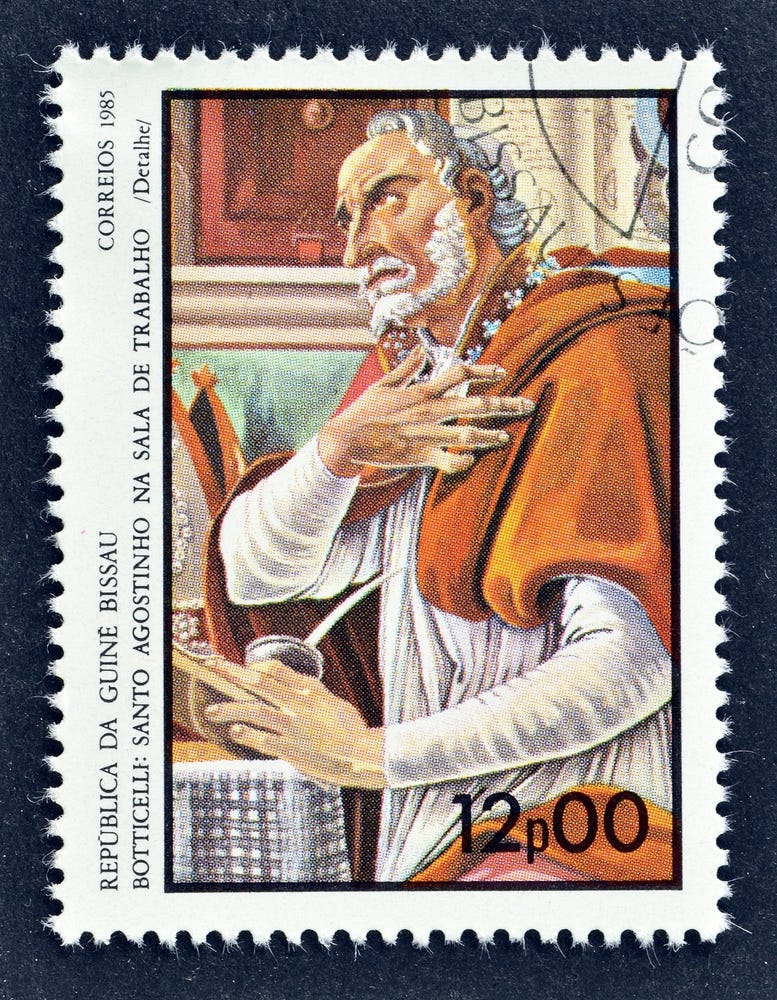As We Learn To Fully Love God, He Teaches Us How We Should Love All People and Things - 04
You can love improperly.
Loving God first does not mean that we neglect1 to love others. It means that our love for others is measured by what God calls love. We can love people too much. Or maybe I should say, “We can love them beyond an appropriate portion.”
Loving God first means that we will NOT put His will in second place when we learn that others DO NOT want the appropriate measure of love God would have us show them.
How might this become a challenge for a church elder?
The elder’s challenge is to teach the Scripture (God’s revelation) to Christ’s sheep. He mustn’t get in the way of God’s Word or God’s Holy Spirit. He should not add to the Word or take away from it in efforts to coddle the sheep. The health of the sheep is too important to the Great Shepherd.2
The writer of Hebrews ended his letter with a blessing for the Church. He wrote, “Now may the God of peace who brought again from the dead our Lord Jesus, the great shepherd of the sheep, by the blood of the eternal covenant, equip you with everything good that you may do his will, working in us that which is pleasing in his sight, through Jesus Christ, to whom be glory forever and ever. Amen.”3
Here’s the thing. The sheep are supposed to do God’s will. And this will is told to us in the Bible. That is the only place. And it is the Spirit of God that produces fruit in us and motivates us to want to love and obey God’s Word.
Therefore, it is the important duty of every elder to teach the Word with clarity and fullness. If an elder decides not to feed a congregant for fear that the congregant won’t like it, that is not loving the brother or sister. Contrarily, if the elder adds his own conditions and rules to the Bible and confuses or burdens the brothers and sisters, then he is not loving them in that case either. On the one hand, he wants to shepherd the sheep because he loves them, but, on the other hand, his love is inappropriate and it has affected his use of God’s Word.
It can be a challenge. And Paul’s warning that there will be teachers and preachers who will tell people what they want to hear, instead of what they need to hear, is damning. It is a heavy weight. Especially, if the church leader is teaching his own family members within the congregation, who themselves might find him disagreeable. So fear of his own children or grandchildren’s angst, and that they might leave the church, produces an even greater temptation to withhold or massage the truth.
The elder is now loving family members improperly, maybe like an idol.
I go back to the quote of Joseph Benson, “We must love Him…with a superlative love; we must love God above any creature whatsoever, and love nothing besides him, but what we love for him, and in subordination to him.”
A Church elder must love the sheep (including his own family members) below God. His love for sheep must be subordinated to his love for God. In fact, how the elder loves these others is to be built upon his love for God.
This is true for every Christian. Our love for all people and all things must arise from how God tells us to love them. It should determine how we love our wives, co-workers, neighbors, parents, and children. We can’t just wing it. It is improper, or misplaced, love whenever we decide to love them outside of the boundaries for which God established the relationship. Eg. Your love for your wife is to be different from your love for your neighbor’s wife.
St. Augustine writes, “When a miser prefers his gold to justice, it is through no fault of the gold, but of the man; and so with every created thing. For though it be good, it may be loved with an evil as well as with a good love: it is loved rightly when it is loved ordinately; evilly, when inordinately.”4
So then, if an elder loves God first, then ordinate love for others will motivate him to work hard to clearly and unapologetically feed the sheep, including the members of his own household. He will be steadfast to pray and fight for clarity and courage.5
After all, God’s will is what is best for all people. If you love another, then you will want God’s best for them. I will offer an example of a loving elder. It may surprise you that I call this love. It is the Apostle Paul.
The example is found in 1 Corinthians 5, where we find how Paul actually loved an unrepentant, sexually perverse, man more than his own congregation did. What did Paul do? He made the decision to deliver the man over to Satan from afar, “so that his spirit may be saved in the day of the Lord.”6
It was a difficult situation. Yet Paul loved God first. And he also submitted himself to Christ’s work for the betterment of His Church. Paul also loved the Corinthians and the disobedient man. He loved each in the right measure (ordinately). He did not allow an inordinate love to obscure the situation.7
See You cannot revert and become cold, section 3 of this chapter.
Jesus is called the Good Shepherd as well as the Great Shepherd.
Hebrews 13:20-21
St. Augustine, City of God, Book Fifteenth: Chapter 22.
2 Timothy 4:1-5
1 Corinthians 5:1-5
Matthew 10:37


